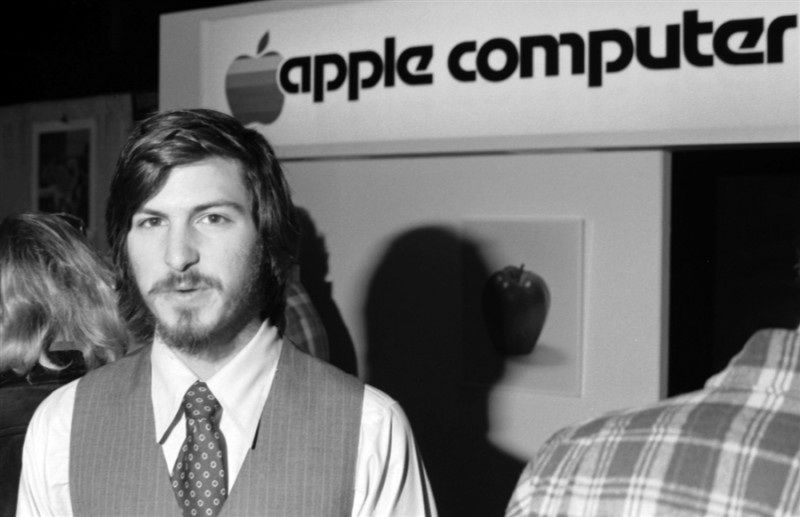The career of Steve Jobs exemplifies the American dream.
It is jarring that death strikes Jobs at a point so young – at 56, he barely had half the professional years of Edison, Ford, and Carnegie, who all died in their eighties. It means the world will miss out on the latter days of career, whether he would’ve stretched out for more incredible goals, or turned to more philanthropic pursuits. In his time, he touched so many areas of cultural life, not just through consumer products, his effect on communication and education, but also the creation of some of the best films of the past decade. So much work in such a compressed period of time. In the beginning, he seemed so young. And at the end, he seemed old beyond his years.
Jobs was and will remain a cult-like figure, the confrontational counterculturalist, the turtlenecked Buddhist who lived in empty mansions. His products bore his imprint in incredible ways – the original iPods had volume and gain problems almost entirely due to Jobs’ personal hearing loss – and his ruthless expectation for perfection in design is evident – that things should not just look beautiful, but work beautifully. This came at a premium, of course, but it also planted the flag for others to follow and broaden the impact. Sometimes you need a $500 iPad before you have a $200 Kindle Fire.
The Apple fanbase, in recent years, insulated Jobs from the kind of criticism targeted at other prominent CEOs. The genius was all his, the failures the fault of an insufficient apostle. There was major blowback online when the New York Times reported recently that there was no public record of Jobs ever donating to charity. In this, he was consistent with other progressives (charitable tracking statistics illustrate that those who favor government-mandated income redistribution are statistically far less giving with their own funds, and vice versa). But who knows if that would have changed in time. Carnegie’s dictum is that you spend the first third of your life learning, the second earning, the third giving what you’ve earned away. Jobs, of course, only got the first two.
Yet what Jobs gave the world was something far more fascinating and eye-opening than another museum wing. He was the rare inventor who did not lose sight of the ultimate marketplace for invention – remaining profoundly and tangibly consumer-focused. There have been few leaders of industry throughout the Twentieth Century who had comparable impact on this scale. Most didn’t have a pedigree that said they could change the world. They were tinkerers, dreamers, and visionaries. The risks they took didn’t all pay off. But oh, when they did…
Before the announcement came down yesterday, I’d planned to write something critical about this Peter Thiel essay, and Neal Stephenson’s too, both of whom write about what they view as an untimely end to American technological innovation. They raise some good points. But their pessimism just doesn’t ring true to me. And in Jobs’ death, I think I understand why.
Here’s the thing. The really brilliant ones – the ones who truly advance culture and technology and communication – change the things they touch in such a way that the barriers they break are thoroughly demolished. Afterwards, disenchantment sets in. These barriers are broken, yes, but what next? And time and again, the dust left behind becomes fertile soil for the ingenuity of our children and theirs.
The essence of American optimism is founded in a belief that the world we pass on can exceed the one we inherited. We are not prisoners of an all-encompassing destiny, and neither are our children. This is not a uniquely American inclination, mind you, but a human one – but not all cultures acknowledge or honor it. It was here in America where such an experience was uniquely understood from our inception in our creed. We create, as we were created, and know all who are created have worth. So they have an equal claim to life, to liberty, and to the pursuit. And the fruits of this pursuit are passed on via free enterprise to the new generation, who see in this device or invention not a crowning achievement or barrier buster or an endpoint, but the seed for new ideas, the foundation for new creations, the starting point for a boundless flood of imagination.
We break walls so they can step through. We take them so far, and they take themselves farther. We pass on principles gained, and they apply them. The old begets the new.
So Ray, the milkshake-mixer salesman, the son of Czech immigrants who lied about his age to fight in the First World War, invents fast food. And Bob, third son of a midwestern Congregational reverend, who built an airplane in the garage when he was 12, invents the microchip. And Steve, an Arab-American kid born out of wedlock, adopted son of a machinist and an accountant, drops out of college, starts a company in his garage, and invents something that puts the whole world in the palm of your hand.
It’s happened before. It will happen again. Until it does: Go west, old man, and grow young with the country.






